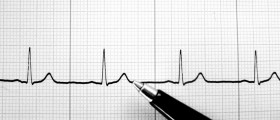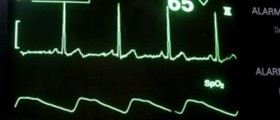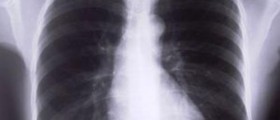
Tachycardia is a medical term that describes heart rate faster than it should be while sleeping or in rest. Under such circumstances, the heart provides less blood and oxygen for the body and may cause ischemia, and even heart attack or angina. The normal heart rate for the adults is usually about 100 beats per minute (bpm). The increase of heart rate is expected in pregnancy, and it is usually about 10 to 20bpm higher than it used to be, because of the increase cardiac output.
Tachycardia in pregnancy can be quite normal condition, but in some cases, it may require medical help. The heartbeat over 100bpm is considered tachycardia in pregnancy. There are different types of tachycardia, according to the place where it comes from. Sinus tachycardia originated in the pacemaker of the heart, the sinus node, and can be appropriate or inappropriate. Non-sinus tachycardia begins at the chambers of the heart. It is divided into ventricular (coming from the lower heart chambers, known as ventricles) and supraventricular (coming from the upper chambers, atriums of the heart) subtypes.
Tachycardia symptoms include: tiredness, chest pain, breathing difficulties, dizziness, body numbness and sometimes, in serious cases fainting. The most common type in pregnancy is sinus tachycardia. It often happens in anemic women and the symptoms are somewhat different than typical. Women might experience anxiety and intolerance to exercise.
Causes of Tachycardia in Pregnant Women
A proper diagnosis of tachycardia in pregnancy should always be made by your doctor. The list of causes below should be considered only as a source of information and never as a diagnostic tool.
The most likely causes of tachycardia in pregnancy are: acute loss of blood, anemia, anxiety, asthma, dehydration, ectopic pregnancy, fever, hard work, heart and lung problems, infections, sepsis, severe injuries, side effect of some medications and thyroid problems. Sometimes, tachycardia might be associated with obstetric problems, such as: amniotic fluid embolus, hemorrhage, placental abruption or uterine rupture.
Treatment of Tachycardia in Pregnant Women
Tachycardia in pregnant women must be properly diagnosed and treated. Problems that caused tachycardia should be taken care of, whether it is the lung or the heart illness. Supraventricular tachycardia in pregnancy is in most cases harmless and doesn’t require any treatment.
Sinus tachycardia is usually treated with beta or calcium channel blockers or anti-arrhythmic medications. It is important to remember that you shouldn’t take any medication to treat this condition unless it was prescribed by your doctor. OTC drugs and remedies might be harmful for both your baby and yourself.
Sometimes, tachycardia might be caused by the overweight and overuse of certain substances. Therefore, pregnant women are advised to avoid tobacco, alcohol, coffee and drugs.
Mild tachycardia is a normal condition for pregnant women and you shouldn’t worry about it. It might help to rest and drink enough water. Sometimes, doctors recommend meditation, because it can ease stress provoked tachycardia.

















Your thoughts on this
Loading...